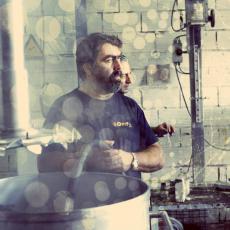Spaces of possibilities: Workers' self-management in Greece
Based on empirical evidence, this paper argues that everyday practices of workers' collectives critique the existing forms of work and instead prioritize egalitarianism and autonomy.
This article focuses on the process of workers’ self-management brought about by a wave of experimentation with alternative organizational forms taking place in Greece since the beginning of the current financial crisis. The discussion is supported by empirical evidence from qualitative fieldwork conducted in three workers’ collectives. Drawing on the findings of my research, I argue that the members’ values and everyday practices give shape and meaning to their aspirations of creating a space that not only critiques the existing forms of work but also puts into practice other possibilities that give emphasis to reciprocal relationships and prioritize collective working, egalitarianism and autonomy. I also argue that their established consensus-based decision-making models, far from representing a state of agreement, allows—within collectively determined boundaries—the creation of a space where diverse opinions flourish rather than being suppressed.This encourages the development of more inclusive models of participation and the construction of rule-creating rather than rule-following individuals.
Keep reading the article at the Open Access Repository of the University of Leicester >>>






Comments
Post new comment